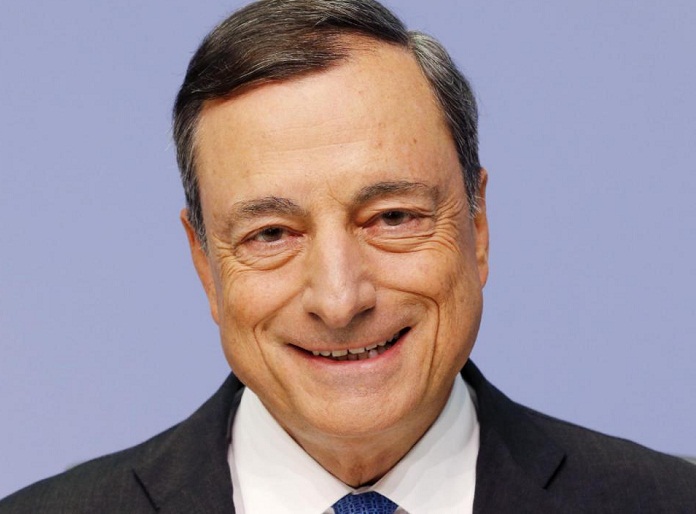"The risks of acting too late outweigh the risks of acting too early," Draghi said in a speech in Frankfurt, Germany, that suggests he is ready to expand the ECB`s monetary stimulus at its next policy meeting March 10.
His argument was bolstered by the EU executive, which said there were risks that the economy could perform worse than forecast this year.
The European Commission cut its growth forecast for the eurozone this year to 1.7 percent from the previous forecast of 1.8 percent. In 2015, the economy grew by 1.6 percent, the Commission estimated — official figures are due next week.
The Commission warned growth could be even lower this year.
"The weaker global environment poses a risk and means we must be doubly vigilant," said Pierre Moscovici, the Commission`s top official.
Given that budgets across much of the eurozone remain tight and reforms take time to bear fruit, a lot of the pressure on improving the region`s economic fortunes has fallen on the ECB. The bank has responded over the past year or so by cutting interest rates further and injecting more money into the economy.
Draghi rejected recent arguments circulating among economists that central banks cannot do much about excessively low inflation because of the sharp falls in oil and raw material costs. He said that attitude risks letting low inflation become ingrained in decisions about wages and prices.
Consumer price inflation across the 19-country eurozone is only 0.4 percent annually, below the bank`s goal of just under 2 percent. Many economists expect the rate to fall further, possibly back into negative territory, in light of the recent slide in oil prices.
Draghi warned against simply waiting until currently low oil prices rise and help bring inflation back to more normal levels. The longer the central bank waits, he said, "the greater the risk that inflation does not return to target."
Draghi said other factors weighing on prices include e-commerce that permits more comparison shopping, and companies` ability to move production to lower-wage countries, depressing wages.
Low inflation helps consumers by making groceries and gas cheaper. But it can signal underlying weak demand and if, it becomes chronic, corrode the wider economy. It makes debt harder to repay, lowering spending by people and companies that are still working off debt burdens. And if low inflation or falling prices become ingrained, that can weigh on wages, investment and growth.
The ECB`s first job is ensuring price stability as mandated by the European Union`s basic treaty — a narrower job than that of other central banks such as the U.S. Federal Reserve. The Fed has a broader mandate to focus on jobs and growth as well. The Frankfurt-based ECB is the chief monetary authority for the 19 countries that share the euro currency.
In December, the ECB ramped up its stimulus measures by extending for another six months its 60 billion euros in monthly bond purchases. The purchases pump newly printed money into the economy, which can lift inflation.
It also cut the rate on deposits from commercial banks at the central bank by 0.10 percent to minus 0.3 percent. The bank held off at its January meeting, but Draghi said then that plunging oil prices had made it less likely that inflation would come back on target. He indicated that therefore the bank would look at adding more stimulus at its next meeting.
More about:
















































